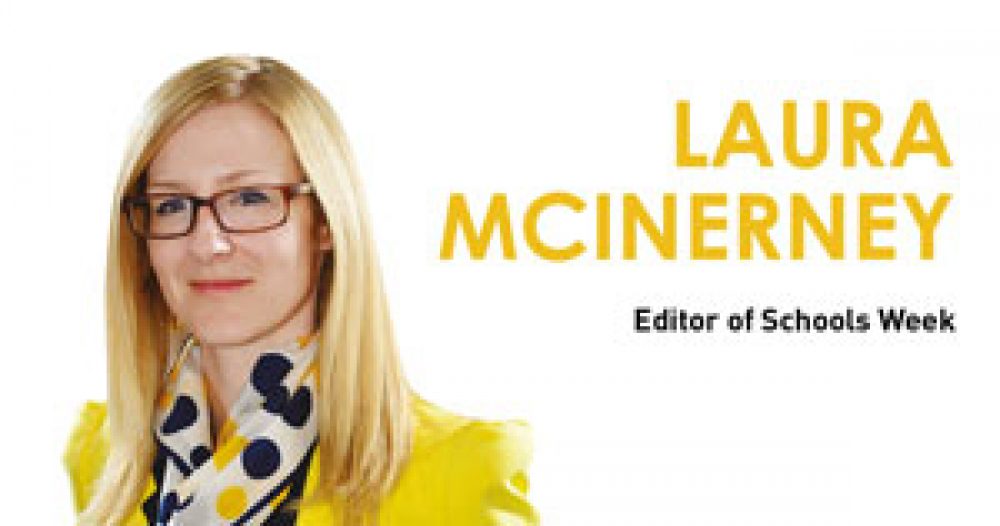As another party conference season ebbs away, this is usually the part where I write a column about the education secretary.
For the past two years I spent the Conservative conference at fringe events stalking Nicky Morgan – turning up at the parties she was at, springing questions on her during debates – and taking stock of what this might mean for the way she would handle events over the coming year.
This year my energy was high and my scribbling pad ready. But where was Justine?
Fringe event after fringe event had a sad, empty chair where she had been invited to sit. At one we were told she had been “urgently” called away by the prime minister. At another I was informed ministers were all on lockdown, for fear they might say something before Greening’s big speech.
On the one hand, this is no big deal. Greening made a speech, she went on Radio 5 and Radio 4, and handled her interviews with aplomb.
She made a speech, she went on Radio 5 and Radio 4, and handled her interviews with aplomb
On the other hand, it’s a shirk. Every working day of their lives teachers go out and face difficult crowds. On the days when you know 9JD is going to be moany, and tiresome, you man up anyway because that’s what the job involves. An education secretary unwilling to face furious questioning over her selective school plans won’t garner sympathy or respect from the chalkface.
What is perhaps more interesting for the schools community, however, is what the lack of public engagement signifies.
There are two possibilities for her no-shows.
One is that the education secretary knows she can’t defend the policy of grammar schools, even to her own party members. It was noticeable that in every fringe event the room tended towards being anti the policy rather than for it. Even when party members only were straw-polled the room was at least 3 to 1 in favour of freezing or having fewer grammars, as opposed to having more.
A second possibility is that she is more of a CEO education secretary than a political one. As a trained accountant her background is in business and strategic change. Colleagues who worked with her at DfID uniformly speak of her ability to grasp details, make good decisions, and bring people along with her. A civil servant who attended her opening speech at the DfE, made the day of her appointment, said she had staff eating out of her hand as she talked about making it a great place to work.
That she has chosen “opportunity areas” as a first reform to champion gives an indication of the way she might operate. Each area is facing different challenges and will be a test-bed for ways to improve social mobility. If that sounds familiar, it’s because it reflects the sort of “pathfinder” model of the Labour years, in which needs were identified, resources given and outcomes evaluated before widely rolling out new reforms.
If Greening manages to deliver a consistently good education system for all by 2020 that would be an incredible thing
Mary Bousted, general secretary of the Association of Teachers and Lecturers, supported this view of Greening as a ‘management-style’ politician at an event this week in which she said the minister is determined to work out what the real priorities are for schools and focus solely on those. It’s Bousted’s hope (and many others’ too) that policies such as SATs resits for year 7s might fall by the wayside during this re-jig of concerns.
This sort of boring-but-important version of politics is precisely what the sector needs. But it comes at the price of sexy headlines and items to sell on the doorstep. If Justine Greening manages to deliver a consistently good education system for all by 2020 that would be an incredible thing making an actual difference to millions of children. But the average Joe won’t care. “Hi, I’m Justine Greening and I made all schools good,” will sound a lot like “I just did what I was supposed to do”.
Theresa May knows this. So she is using the return of grammars to play the long, political, soundbite game on Greening’s behalf.
The problem is that it ends up with a slightly split-personality version of education policy, where no one believes the good stuff being done on the ground because the big message is of a revolution that no one wants.
Justine Greening is early in her role and, if the way she was hobbling around in her heels by the end of conference is anything to go by, she is still getting used to filling its shoes. But I hold out a glimmer of hope, that she has more steel and courage, and is far smarter than she has been allowed to let on at this year’s conference.
Let’s hope that by this time next year, we’ve seen it shine through.








Thanks for reporting this – it’s the kind of detail that never finds its way into mainstream newspapers. For me what it shows is that Greening is Education Sec in name only. Nick Timothy is the actual driver of education policy. She must be fizzing with frustration.
Yes. Time for Justine to kick off the shoes that made her hobble and stride out in boots while flying the flag for comprehensives. It may wreck her ministerial career (for now) but she’d be doing what the Government claims it’s doing – basing policy on evidence. And she’d be showing that she’s not going to join in with the cynical vote chasing described elsewhere in Schools Week.
Go, Greening, Go!
Thank you Laura for stalking her on our behalf. What Schools Week is doing is filling a really important gap in the coverage of education issues that has opened up in recent years. Enjoyed this piece and hope your optimism about Justine Greening’s approach proves to be well founded – good news is something sorely lacking in education policy right now!